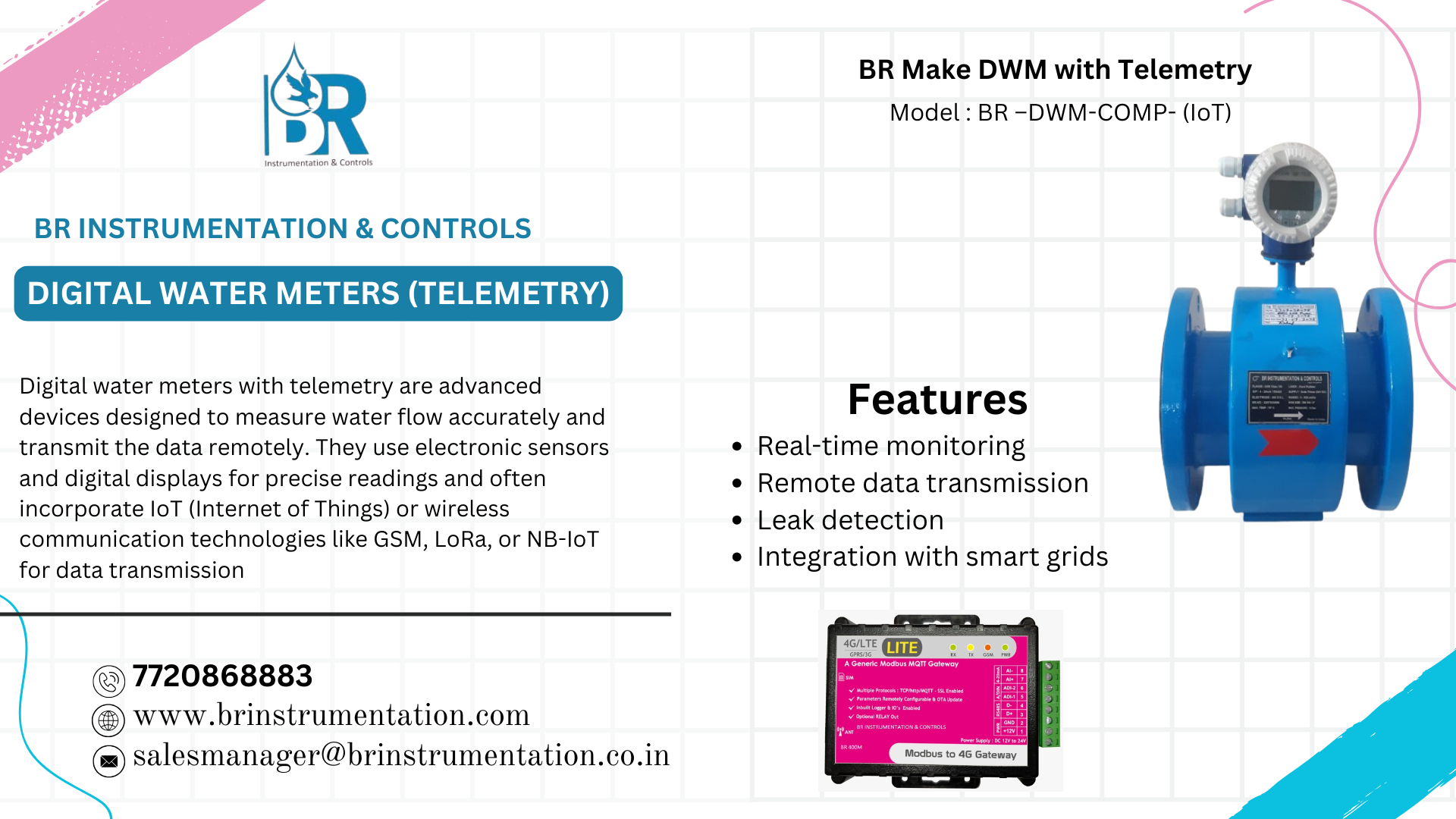Digital Water Meters(Telemetry): The Future of Smart Water Management

Digital Water Meters (Telemetry): The Future of Smart Water Management
With the increasing global focus on water conservation and efficient resource management, digital water meters with telemetry technology have emerged as a game-changer. These advanced meters measure water consumption with high precision and enable remote monitoring and data analysis, revolutionizing water utility management.
What are Digital Water Meters?
Digital water meters are intelligent devices that employ electronic sensors to measure and record the flow of water. Unlike traditional mechanical meters, which depend on moving parts, digital meters utilize ultrasonic or electromagnetic technology for more accurate measurements. This approach minimizes wear and tear, improves precision, and extends the lifespan of the meter.
The Role of Telemetry in Water Meters
Telemetry technology in digital water meters allows for remote data transmission using communication networks such as IoT, GSM, NB-IoT, LoRaWAN, or Wi-Fi. This enables real- time monitoring and eliminates the need for manual meter readings. Utilities and consumers can access usage data through cloud-based platforms, mobile apps, or web dashboards. Key Benefits of Digital Water Meters with Telemetry
- Accurate Readings: Eliminates human errors associated with manual readings.
- Remote Monitoring: Consumers and utilities can track water usage in real-time.
- Leak Detection & Alerts: Identifies abnormal consumption patterns and alerts users to possible leaks.
- Billing Efficiency: Enables automated billing, reducing disputes and improving revenue collection.
- Water Conservation: Helps in detecting excessive water usage and promotes sustainable consumption.
- Integration with Smart City Infrastructure: Supports smart city initiatives by integrating with other IoT-based utilities.
Applications of Digital Water Meters
- Residential Buildings: Smart homes and apartments use digital meters for fair water billing.
- Industrial & Commercial Establishments: Factories, hotels, and malls benefit from accurate water consumption tracking.
- Municipal Water Supply Systems: Local governments use telemetry-enabled meters for efficient distribution and loss detection.
- Agriculture & Irrigation: Helps farmers monitor water use in irrigation systems for better resource management.
Challenges and Considerations
While digital water meters offer numerous advantages, challenges such as initial costs, network connectivity issues, and cyber security concerns need to be addressed. However, technological advancements and increasing adoption rates are gradually overcoming these barriers.
Conclusion
Digital water meters with telemetry represent the future of water management by offering enhanced accuracy, efficiency, and sustainability. As smart water solutions gain traction worldwide, investing in this technology can significantly improve resource conservation and operational effectiveness for utilities and consumers alike.
